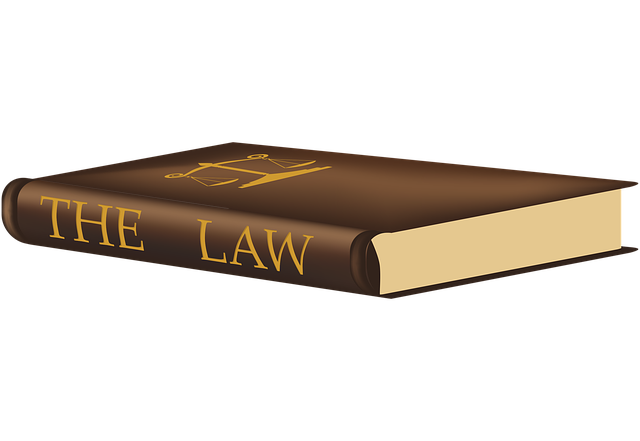In today's global business landscape, understanding and combating financial fraud, including accounting manipulation and insider trading, is paramount for integrity. Proving damages in defamation cases linked to fraudulent practices is crucial for accountability and deterrence. This process involves robust evidence of false statements with malicious intent causing tangible harm. It requires strategic navigation through complex financial records, forensic accounting, and expert witness testimonies. Successful cases highlight the importance of thorough investigations, strong legal representation, and a deep understanding of both facts and relevant legal precedents across jurisdictions. These strategies ensure just compensation for losses and deter future unethical behavior.
Fraudulent financial practices pose a significant threat to individuals, businesses, and the economy. This article delves into the intricate world of financial defamation, exploring its various types and legal implications. We analyze the crucial role of evidence in proving damages, highlighting effective strategies for damage assessment. Furthermore, through compelling case studies, we demonstrate successful instances of proving damages in defamation cases, emphasizing the importance of understanding these practices to safeguard against financial manipulation.
- Understanding Fraudulent Financial Practices: Definition and Types
- Legal Implications of Defamation in Financial Cases
- The Role of Evidence and Proving Damages
- Strategies for Effective Damage Assessment
- Case Studies: Successful Proving of Damages in Defamation
Understanding Fraudulent Financial Practices: Definition and Types

Fraudulent financial practices encompass a wide range of deceptive activities aimed at gaining illicit financial advantages. These practices go beyond simple mistakes or oversights; they involve deliberate attempts to mislead, manipulate, or distort financial information for personal gain. Understanding these practices is crucial in today’s complex business landscape, where transactions occur across borders and involve intricate financial instruments.
There are various types of fraudulent financial activities, each with its unique characteristics. From accounting manipulation and falsified reports to embezzlement and insider trading, these schemes can take many forms. For instance, white-collar crimes, which often include fraud, are distinguished by their non-violent nature but can have devastating economic impacts. Proving damages in defamation cases related to financial fraud is a critical aspect of all stages of the investigative and enforcement process, ensuring accountability and deterring future misconduct. An unprecedented track record of successful prosecutions highlights the effectiveness of robust legal frameworks and underscores the importance of maintaining integrity within respective business environments.
Legal Implications of Defamation in Financial Cases

In financial cases involving allegations of fraud, understanding the legal implications of defamation is paramount. When a party accuses another of fraudulent practices, the potential for defamation arises, especially if the claims are baseless and cause reputational harm. Defamation laws play a crucial role in protecting individuals’ and corporate reputations, but they also come with significant legal consequences. Proving damages in defamation cases, particularly in financial contexts, requires robust evidence demonstrating that the accused’s statements were false, made with malice, and caused tangible harm.
The process of navigating defamation claims involves all stages of the investigative and enforcement process, from gathering facts to presenting a compelling case before judges or juries trials. The complexity increases when corporate and individual clients are involved, as strategic legal arguments must consider the nuances of each entity’s liability and defense mechanisms. Ultimately, successful cases hinge on demonstrating the severity of harm and the intent behind the false statements, which can lead to substantial financial settlements or judgments.
The Role of Evidence and Proving Damages

In fraudulent financial practices cases, evidence plays a pivotal role in proving damages and holding wrongdoers accountable. This involves meticulous documentation, forensic accounting, and expert witness testimonies to unearth concealed transactions and assess the extent of financial harm. Proving Damages in Defamation Cases requires a comprehensive strategy where each piece of evidence contributes to building a compelling narrative. Attorneys must navigate complex financial records, often scattered across different institutions, to reconstruct fraudulent activities and quantify their impact on the respective business.
Successful winning challenging defense verdicts hinges on presenting irrefutable evidence that links the accused to fraudulent actions and demonstrates the resulting damages. This process demands a deep understanding of financial systems and legal precedents specific to defamation cases across the country. By meticulously compiling and presenting this evidence, plaintiffs can secure just compensation for their losses and send a clear message that such practices will not be tolerated.
Strategies for Effective Damage Assessment

Assessing damage is a crucial step in proving damages in defamation cases. It involves meticulously examining the extent and impact of harm caused by fraudulent financial practices. Legal professionals must gather comprehensive evidence, including financial records, expert opinions, and witness testimonies, to paint a clear picture of the losses incurred. This process requires a deep understanding of the defendant’s activities and their ripple effect on individuals or institutions.
Effective damage assessment goes beyond immediate monetary losses. It considers the long-term consequences and the broader impact on the victim’s reputation, relationships within philanthropic and political communities, and overall well-being. By involving experts across various fields, from finance to psychology, legal teams can navigate all stages of the investigative and enforcement process, ensuring a robust case that aims to avoid indictment while seeking justice and restitution.
Case Studies: Successful Proving of Damages in Defamation

In recent years, several case studies have demonstrated successful strategies for proving damages in defamation cases. These examples highlight the importance of robust legal representation and a thorough understanding of both the facts and the law. One notable instance involved a high-profile executive falsely accused of financial irregularities in their white collar defense. Through meticulous documentation and expert testimony, the plaintiff’s attorney successfully navigated the complexities of the case, securing a substantial settlement that compensated for reputational harm.
Another compelling case saw a small business owner achieve a complete dismissal of all charges after exposing a fraudulent scheme. By presenting irrefutable evidence and employing innovative legal arguments, their counsel not only cleared their client’s name but also set a precedent that has been cited across the country in similar cases. These victories underscore the power of thorough investigation, strategic planning, and a relentless pursuit of justice in defamation litigation.
Fraudulent financial practices pose a significant threat to individuals and businesses alike, and understanding their various forms is crucial. This article has explored the legal complexities surrounding defamation in financial cases, emphasizing the importance of solid evidence and damage assessment strategies. By examining real-world case studies, we’ve highlighted successful proving damages in defamation cases, providing valuable insights for navigating these challenging situations. Remember that when it comes to protecting your financial integrity, a thorough understanding of your rights and the legal process is key.






